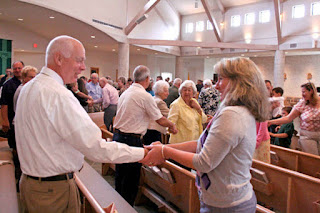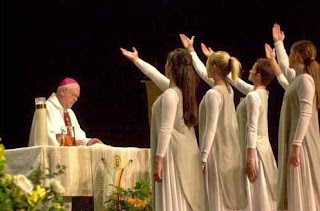
We will certainly find the faithful disciple among us—a person like St. John, the Blessed Mother, or St. Mary Magdalene—someone who stands by Jesus and His Church, faithful until the bitter end. These three were among those remaining at the foot of the cross. People like them, however, seem to be few and far between—even in Jesus’ time. After all, where were all of His other disciples?
- The number of Catholics who do not attend Mass weekly far outweighs those who participate regularly. If only those former Christmas and Easter crowds would continue all year long!
- More and more parents are consciously limiting the sizes of their families—often with seemingly good intentions—thus contributing to a reduced future population of parishes and schools. Gone are the days of those stereotypical large Catholic families. (Whether or not artificial birth control or sterility techniques are being employed to do this is a topic for another day.)
- Fewer Catholics tend to get married in Church. (Options such as destination weddings are increasing in popularity.) And if couples still come to the Church to be married, they are frequently living together (cohabitating) first.
- Personal sacrifice for matters of faith is more infrequent today. (For example, my parents chose not to take a personal vacation for over 30 years because they chose to send their 5 children to Catholic schools—all the way through college! I’m not sure how many people today would be willing to make a similar sacrifice so that their children could attend a Catholic school.)
- Morality has become all too subjective and relativistic. What “I” think is right or wrong too often supersedes what the Church traditionally teaches on the matter. (In conjunction with this mentality, too many Catholics do not benefit from the Sacrament of Penance regularly. There is no need to do so when you act as your own moral compass.)
- Scandal, disillusionment, past questionable decisions, mockery or criticism of organized religion, materialism, secularism, indifferentism, and far too many other factors including sin and selfishness, have eroded and taken a serious toll on the faith of so many.








